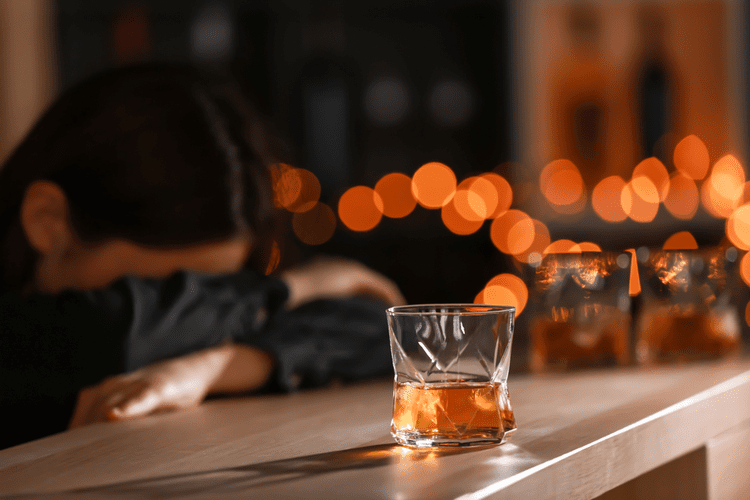Does Alcohol Cause Depression And Mental Health Problems?
Above all, remember that recovery is a journey, and your progress may not always be linear. Be patient with yourself, stay committed to your treatment plan, and lean on your support network for encouragement and guidance. With the right support, resources, and determination, it is possible to overcome depression and alcohol use disorders and embark on a path toward a fulfilling, sober life. Depending on your individual needs, medication may also be recommended to help manage depression symptoms and alcohol withdrawal symptoms and support your recovery from alcohol use disorder. Adhere to your provider’s prescription recommendations and attend regular follow-up appointments for medication management.
Find A Support Group
However, long-term alcohol use can lead to dependency and worsen depressive symptoms. Similarly, drinking can exacerbate depression symptoms because alcohol is a depressant that slows brain functioning and disrupts the balance of neurotransmitters responsible for managing emotions. Maybe you drink to forget about a painful breakup or to relieve the stress of your job. While alcohol may provide temporary relief, it can lead to a dangerous cycle of using alcohol to manage negative emotions. Research shows that people struggling with alcohol use disorder (AUD) are three times more likely to experience major depression.
Alcohol Causes Personal, Professional, and Social Problems
- People may turn to alcohol as a way to cope with mood problems, but drinking alcohol can also contribute to symptoms of depression.
- It’s isolating to feel like everyone else can drink casually without giving it so much as a second thought — and without it negatively affecting their lives.
- These changes can affect your mood and behavior while drinking or up to several days after.
Alcohol use disorder includes a level of drinking that’s sometimes called alcoholism. Inpatient rehabilitation programs provide intensive therapy and support for people struggling with alcohol addiction or substance abuse. Besides severely affecting your physical and mental health, alcohol can also lead marijuana addiction to social and legal problems. The presence of depression and alcohol use disorder suggests that you have a co-occurring disorder. It requires dual diagnosis rehab — a specialized treatment that addresses both issues.
- Many studies have found that alcohol dependence is closely linked to depression.
- Some people who take selective serotonin reuptake inhibitors (SSRIs) may become severely intoxicated when they use antidepressants.
- Many people with alcohol use disorder hesitate to get treatment because they don’t recognize that they have a problem.
- Adults who met criteria for alcohol use disorders also had a higher risk for depression.
- Understanding these different manifestations can help individuals recognize patterns in their own experiences and seek appropriate help when needed.
Other Ways Alcohol Can Affect Your Life
Fehling recommends that family and friends of heavy drinkers “build a cohesive message” and unite. Depending on your situation, it may be wise to locate and be in touch with a treatment center in case one is needed immediately. Support groups like Adult Children of Alcoholics and Al-Anon can also be helpful, Fehling says. In the shorter term, without intervention to change drinking habits, researchers expect 100 additional deaths and 2,800 additional cases of liver failure between 2020 and 2023. Then people “fall into a kind of loop” of drinking and depression, and the two conditions feed off each other. That’s why your doctor or psychologist will work with you to create a treatment approach that addresses both issues.
Symptoms
- Restaurants and bars are shut down, parks are closed and spending time with friends, colleagues and family is restricted.
- At the same time, people with depression may attempt to self-medicate with alcohol.
- Studies of twins have shown that the same things that lead to heavy drinking in families also make depression more likely.
- Clear Behavioral Health also offers continuing care to your treatment providers and recovery community with aftercare programs, allowing you to stay connected and supported in your journey toward sustained recovery and better health.
If you have certain conditions, including depression, you could be at an increased risk of getting alcohol use disorder. If you or your loved ones are worried about your alcohol use or think you have alcohol use disorder, talk to your doctor or a mental health specialist about treatment options. Alcohol misuse can worsen depressive symptoms that are already present. Alcohol also affects mood and brain chemistry quite directly, so regularly drinking alcohol is considered one of the risk factors for developing depression. The effects of chronic, heavy alcohol intake on physical health can also make depression worse.
Several separate lines of evidence cast doubt on the possibility that high proportions of alcoholics have severe, long-term depressive or anxiety disorders. These research does drinking make your depression worse approaches lead to three conclusions, discussed below. Depression and alcohol may feel like an inescapable pair, but they do not have to define anyone’s future. Understanding their connection, recognizing the signs, and seeking treatment are the keys to breaking free.

A healthcare professional can help you get to the bottom of what you’re struggling with and develop a solution that can keep you away from alcohol abuse. Heavy alcohol use impairs brain functions, such as memory and reasoning. Scientists have linked frequent alcohol use to depression, anxiety, mood disorders, and self-harm (e.g., suicide attempts and cutting).

The second, and more sinister environment is when you’re alone, feeling isolated and depressed. Unhealthy alcohol use includes any alcohol use that puts your health or safety at risk or causes other alcohol-related problems. It also includes binge drinking — a pattern of drinking where a male has five or more drinks within two hours or a female has at least four drinks within two hours. An estimated 20 percent of adults in the U.S. drink alcohol to help them fall asleep.
Mental Health and Addiction Treatment with Clear Behavioral Health
It’s challenging enough to be the only one not partaking but as the night progresses, it’s even harder once you’ve become the only sober person in a group of happy drunks. If you’re calling on behalf of someone else, stay with them until help arrives. You may remove weapons or substances that can cause harm if you can do so safely. A 2011 analysis found a correlation between using alcohol before the age of 13 and later engaging in self-harm. Physical activity helps to release endorphins to relieve stress and make you feel better. Look up free trials of virtual exercise programs, go hiking outside or practice yoga.
It’s a commitment to self-worth, to healing, and to building a future free from the cycle of depression and alcohol. Beyond these few, there are many other forms that depression can take and similar disorders that may look like depression on the surface. If you think you may be experiencing depression or a related condition, talk to your doctor and reach out to trusted people for help.
